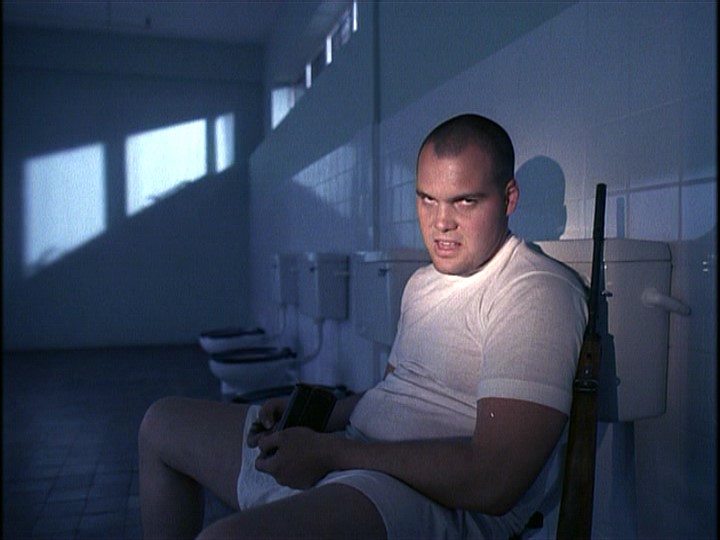

Joanna Bourke is a professor of history at Birkbeck College, University of London.
After soldiers are convinced to fight, what happens next? Or, as Bourke asks, "in the crimson heat of battle, how does that soldier continue to fight; and conversely, what causes that individual who has acted with valor in one battle to falter, to lose the ability to fight?"According to Bourke, a central focus of training regimes during World War I involved the harnessing of manly instincts through the use of hate training and blood training. These training exercises included squirting animal blood on recruits' faces during bayonet drills and instructing recruits to "test the resistance of the body" of slaughterhouse carcasses with their bayonets. In contrast, women were perceived to possess the protective impulse and tender emotions of the "primitive cave women's maternal instincts," which could be roused by the sight of the wounded or stories of outrage.Finally, Bourke touches upon the difficulty of readjusting to civilian life. Noting that "comradeship and the powerful emotions unleashed within that primary group forged in the crucible of battle failed to survive this transition from battle to peace," Bourke argues that socialization for war should include socialization for peace.
Military Socialization: Why Soldiers Fight
"In The War Zone" Conference Introduction
5:20
Simon Wessely: Theories for Combat Motivation
15:32
Leo Braudy: Cultural Shaping and Historical Change
15:27
Joanna Bourke: Combat Training and Socialization
15:35
Michael Ignatieff: Justifications for War
10:19
Lorry M. Fenner: Why Women Fight and the Will to Combat
20:28
Panelists' Interaction
17:11
Audience Question and Answer
6:36
Home Front/Battle Front: The Gendered Geography of War
Rape and the Gendered Weapons of War
Remembering and Mourning: The Work of Women and Men
The Other War: Iraq Vets Bear Witness
by Chris Hedges & Laila Al-Arian
This article will form the basis of Collateral Damage, forthcoming from Nation Books. Research support for this article was provided by the Investigative Fund of The Nation Institute. Research assistance was provided by Nicholas Jahr.
In Their Own Words: Camilo Mejía (above) of Miami, and three others share their impressions of the interactions between US military forces and Iraqi noncombatants in this slide show. They were among the fifty combat veterans interviewed for this article.
Over the past several months The Nation has interviewed fifty combat veterans of the Iraq War from around the United States in an effort to investigate the effects of the four-year-old occupation on average Iraqi civilians. These combat veterans, some of whom bear deep emotional and physical scars, and many of whom have come to oppose the occupation, gave vivid, on-the-record accounts. They described a brutal side of the war rarely seen on television screens or chronicled in newspaper accounts.
Their stories, recorded and typed into thousands of pages of transcripts, reveal disturbing patterns of behavior by American troops in Iraq. Dozens of those interviewed witnessed Iraqi civilians, including children, dying from American firepower. Some participated in such killings; others treated or investigated civilian casualties after the fact. Many also heard such stories, in detail, from members of their unit. The soldiers, sailors and marines emphasized that not all troops took part in indiscriminate killings. Many said that these acts were perpetrated by a minority. But they nevertheless described such acts as common and said they often go unreported--and almost always go unpunished.



No comments:
Post a Comment